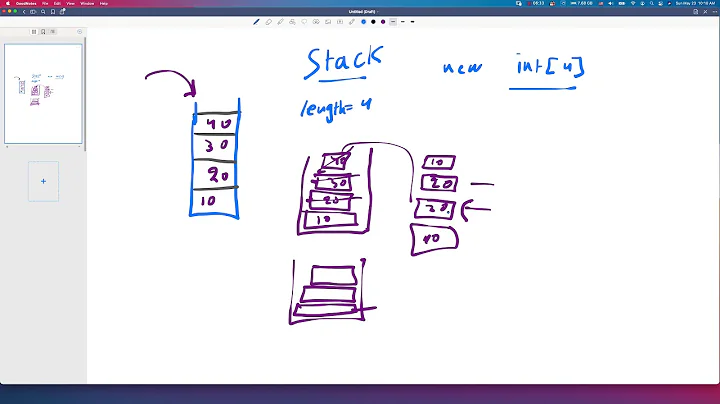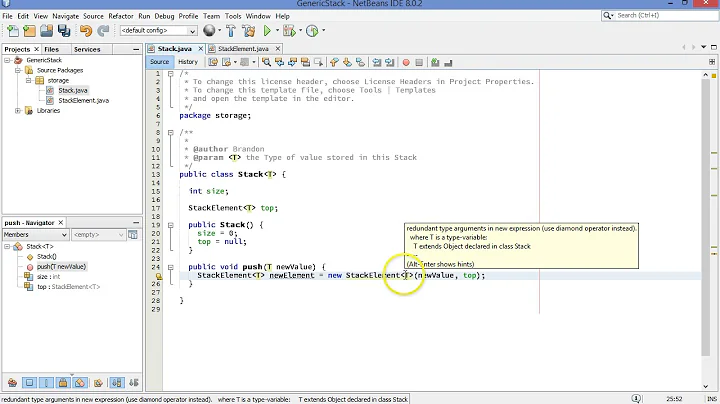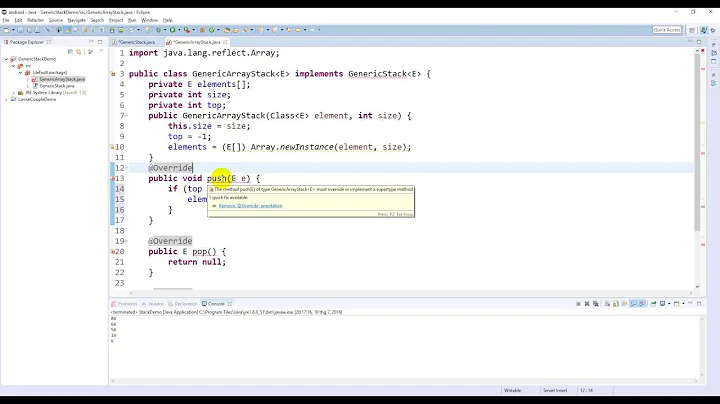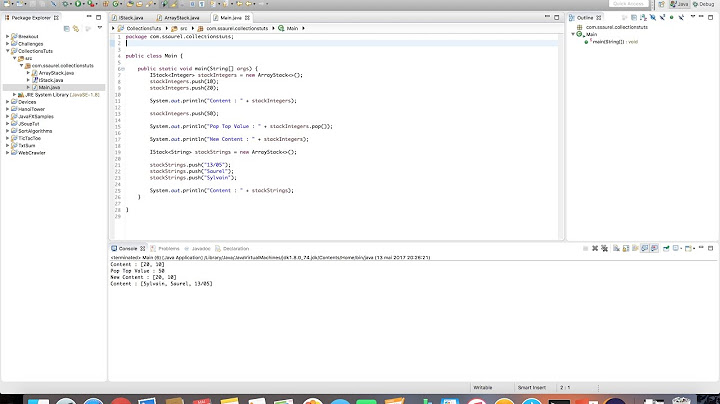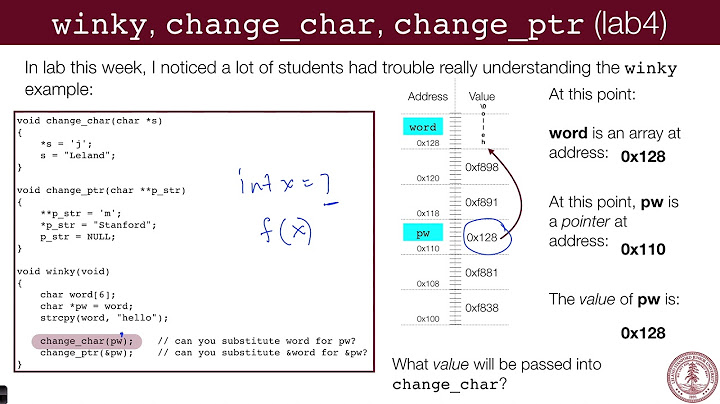Generic stack implementation
Solution 1
The underlying issue is type erasure. The relevant implications of this means that an instance of the Stack class doesn't know it's type arguments at run-time. This is the reason why you can't just use the most natural solution here, array = new T[maxSize].
You've tried to work around this by creating an array using Array.newInstance(...), but unfortunately this array does not have elements of type T either. In the code shown the elements are of type StackArray, which is probably not what you intended.
One common way of dealing with this is to use an array of Object internally to Stack, and cast any return values to type T in accessor methods.
class StackArray<T> implements Stack<T> {
private int maxSize;
private Object[] array;
private int top;
public StackArray(int maxSize) {
this.maxSize = maxSize;
this.array = new Object[maxSize];
this.top = -1;
}
// ... lines removed ...
public T pop() {
if(this.isEmpty())
throw new EmptyStackException();
return element(top--);
}
public T peek() {
if(this.isEmpty())
throw new EmptyStackException();
return element(top);
}
// Safe because push(T) is type checked.
@SuppressWarnings("unchecked")
private T element(int index) {
return (T)array[index];
}
}
Note also you have a bug in the resizeArray() method where maxSize is never assigned a new value. You don't really need to keep track of maxSize, as you could just use array.length.
I think there is also an issue with peek() when the stack is empty in the original code.
Solution 2
Your code creates arrays of StackArray, and then you try to stick Character objects in it, just as if you were doing this:
static void add(Object arr[], Object o) {
arr[0] = o;
}
public static void main(String[] args) {
StackArray stack[] = new StackArray[1];
Character c = 'x';
add(stack, c);
}
Related videos on Youtube
MAA
Updated on March 07, 2020Comments
-
MAA about 4 years
I'm trying to implement a generic stack.
Here's the interface
package stack; public interface Stack<T>{ void push(T number); T pop(); T peek(); boolean isEmpty(); boolean isFull(); }Here's the class
package stack; import java.lang.reflect.Array; import java.util.EmptyStackException; public class StackArray <T> implements Stack<T>{ private int maxSize; private T[] array; private int top; public StackArray(int maxSize) { this.maxSize = maxSize; // @SuppressWarnings("unchecked") this.array = (T[]) Array.newInstance(StackArray.class, maxSize); this.top = -1; } private T[] resizeArray() { /** * create a new array double the size of the old, copy the old elements then return the new array */ int newSize = maxSize * 2; T[] newArray = (T[]) Array.newInstance(StackArray.class, newSize); for(int i = 0; i < maxSize; i++) { newArray[i] = this.array[i]; } return newArray; } public boolean isEmpty() { return top == -1; } public boolean isFull() { return top == maxSize-1; } public void push(T element) { if(!this.isFull()) { ++top; array[top] = element; } else { this.array = resizeArray(); array[++top] = element; } } public T pop() { if(!this.isEmpty()) return array[top--]; else { throw new EmptyStackException(); } } public T peek() { return array[top]; } }Here's the Main class
package stack; public class Main { public static void main(String[] args) { String word = "Hello World!"; Stack <Character>stack = new StackArray<>(word.length()); // for(Character ch : word.toCharArray()) { // stack.push(ch); // } for(int i = 0; i < word.length(); i++) { stack.push(word.toCharArray()[i]); } String reversedWord = ""; while(!stack.isEmpty()) { char ch = (char) stack.pop(); reversedWord += ch; } System.out.println(reversedWord); } }The error is
Exception in thread "main" java.lang.ArrayStoreException: java.lang.Character at stack.StackArray.push(StackArray.java:40) at stack.Main.main(Main.java:14)line 40 is in the push method
array[top] = element;Side Question: Any way to suppress the warning in the constructor? :)
-
iMysak about 7 yearsDidn't you want write T[] array = new T[maxsize]; instead of (T[]) Array.newInstance(StackArray.class, maxSize); ?
-
jlordo about 7 years
Array.newInstance(StackArray.class, maxSize);will create an Array forStackArrayelements. You're trying to put aCharacterin that array and that is not possible. -
iMysak about 7 yearsplease take a look on stackoverflow.com/q/20557762/814304
-
Lew Bloch about 7 yearsUse of
newInstanceis the fundamental issue. Just declare anObject[]and use an unsafeT[]cast along with an@SuppressWarningsannotation, being sure to add the mandatory associated code comment explaining why it's safe.
-
-
MAA about 7 yearsThank you very for the extra bugs. As to the original problem, I'm never comfortable with using Object, so I kept the array as an array of T, but assigned an array of Object to it in the constructor (after casting) like @Lew Bloch suggested. Maybe it's the same thing tho:)
